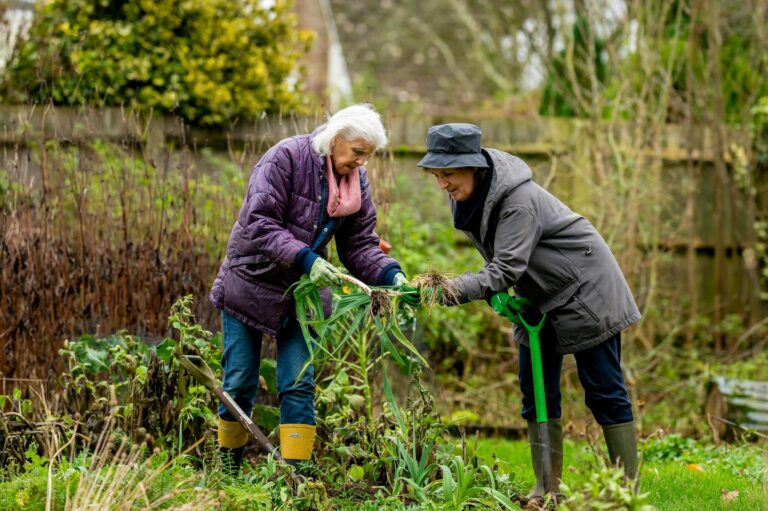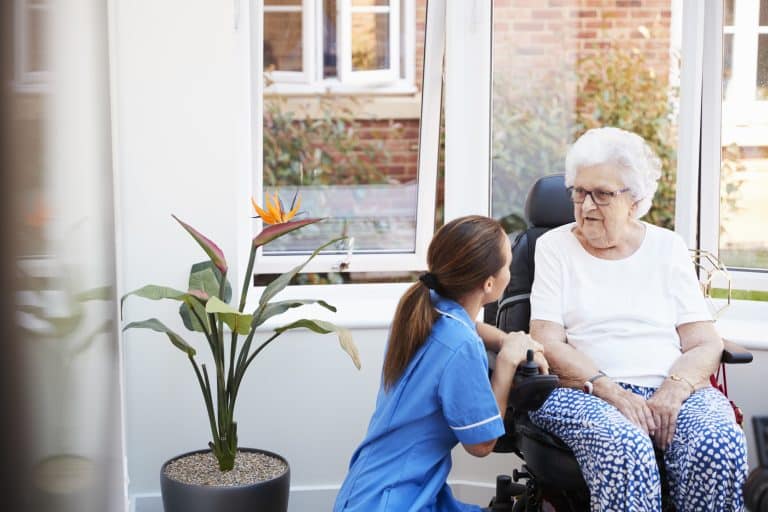7 Essential Tips for Promoting Healthy Aging in Elderly
As we age, it becomes increasingly important to prioritize our well-being and adopt strategies that promote healthy aging in elderly individuals. This blog post will provide valuable insights into various tips for promoting healthy aging in elderly populations, ensuring that older adults can maintain their physical health and overall quality of life.
We will explore tips for promoting healthy aging in the elderly. We’ll delve into the benefits of regular exercise tailored specifically for seniors, as well as the significance of balance training in preventing falls. Additionally, we’ll discuss the impact of smoking on one’s health and share resources available to help quit this harmful habit. By incorporating these tips into their daily routines, older adults can enhance their overall well-being and enjoy a higher quality of life.
The importance of sleep quality cannot be overstated; thus, we will delve into common sleep issues faced by older people and offer guidance on establishing a regular sleep schedule. Additionally, managing weight through diet choices is crucial for promoting healthy aging in elderly individuals – learn about portion control, balanced meals, and fiber-rich foods that aid digestion. Implementing these tips for promoting healthy aging in the elderly can significantly contribute to their overall well-being.
Lastly, adopting certain eating patterns like the Mediterranean diet can contribute to healthier living during old age. Alongside this dietary approach are maintaining social connections and positive thinking which play an essential role in mental health among seniors. Finally yet importantly: don’t forget those checkups with your doctor! We’ll cover preventative care screenings and address sensitive topics during appointments.
Table of Contents:
- Regular Exercise for Seniors
- Quit Smoking for Healthy Aging
- Importance of Adequate Sleep for Elderly Individuals
- Managing Obesity through Diet Changes and Weight Loss Strategies
- Adopting Nutrient-Rich Diets like Mediterranean-style Eating Patterns
- Stay Socially Connected and Positive for Healthy Aging
- Regular Checkups with Healthcare Providers
- FAQs in Relation to Tips for Promoting Healthy Aging in the Elderly
- Conclusion
Regular Exercise for Seniors
Exercising regularly is essential for aging well and can assist elderly individuals in leading longer healthier lives.
Low-impact exercises suitable for seniors
Low-impact exercises like walking, swimming, yoga, and tai chi are easy on joints and provide a great workout for older people.
The importance of balance training in preventing falls
Balance training is essential to forestall falls, which can result in serious harm or even death among the elderly. Exercises like standing on one leg or practicing heel-to-toe walking can significantly improve stability over time (National Institute on Aging).
- Maintain an active lifestyle: Engage in at least 150 minutes of moderate-intensity aerobic activity per week (CDC guidelines) alongside muscle-strengthening activities twice weekly.
- Vary your workouts: Including different types of exercises like cardio, strength training, and balance can keep things interesting and ensure a well-rounded fitness routine.
- Stay safe: Always warm up before exercising and listen to your body’s signals. Stop exercising if you experience any pain or discomfort, and consult a healthcare professional right away.
Quit Smoking for Healthy Aging
Quit smoking to promote healthy aging and reduce the risk of heart disease, cancer, and other health problems that become more critical as we grow older.
Health Risks of Smoking for Older Adults
- Increased risk of heart disease.
- Poor lung function leads to chronic obstructive pulmonary disease (COPD).
- Higher chances of developing various types of cancer.
- Weakened immune system making it harder to fight off infections.
Resources to Help Seniors Quit Smoking
- Smokefree.gov provides information on how to quit smoking and support services like live chat and text messaging programs.
- Nicotine substitutes, like gum or patches, can assist in alleviating the symptoms of withdrawal as one moves away from cigarettes.
- Many local community centers offer counseling sessions specifically designed for older adults looking to quit smoking.
It’s never too late to make a positive change in your life, and quitting smoking is an essential step towards achieving healthy living and potentially adding years to your life.
Importance of Adequate Sleep for Elderly Individuals
Maintaining regular sleep habits can help older adults to avoid potential health issues and enhance their longevity.
Establishing a regular sleep schedule
Developing a regular bedtime habit and rising at the same time daily can adjust your body’s internal clock, assisting you to drift off easily and wake up feeling invigorated.
- Avoid caffeine and alcohol close to bedtime.
- Limit screen time before bed.
- Maintain a relaxing pre-sleep ritual like reading or taking a warm bath.
- Keep naps short (20-30 minutes) and earlier in the day if needed.
Tips on creating an ideal sleeping environment
An optimal sleeping environment can also contribute significantly to ensuring adequate rest for elderly individuals.
- Darker room: Use blackout curtains or shades to block out any external light sources.
- Cooler temperature: Keep your bedroom cool (between 60-67°F), as cooler temperatures have been shown to support better quality sleep.
- Noise reduction: Consider using a white noise machine or earplugs to minimize any potential disturbances.
- Comfortable bedding: Invest in quality mattresses, pillows, and sheets that provide the necessary support and comfort for your body type and sleep preferences.
Managing Obesity through Diet Changes and Weight Loss Strategies
Obesity is a major challenge for healthy aging, but losing weight can greatly benefit older adults.
Understanding the impact of obesity on physical health
Excess weight can lead to health problems like heart disease and joint pain, reducing the quality of life for seniors.
Tips for making healthier food choices
- Eat mindfully: Pay attention to hunger cues and avoid emotional eating.
- Incorporate whole foods: Opt for fresh fruits, vegetables, and lean proteins.
- Maintain portion control: Be mindful of how much you eat at each mealtime.
- Avoid sugary beverages: Replace sodas and other sugary drinks with water or unsweetened tea.
By implementing these changes alongside regular exercise tailored for older adults, maintaining good physical health during golden years becomes an achievable goal.
Adopting Nutrient-Rich Diets like Mediterranean-style Eating Patterns
Dietary habits play an essential role in promoting healthy aging too, and adopting diets rich in fiber, such as Mediterranean-style eating patterns, can have positive results on overall well-being among older adults.
Benefits of a Mediterranean Diet for Seniors
- Heart health: Reduce the risk of heart disease and lower cholesterol levels by consuming fruits, vegetables, and healthy fats.
- Cognitive function: Protect against cognitive decline and improve brain function with the antioxidants found in this diet.
- Better digestion: Prevent constipation issues common among older adults by consuming high-fiber foods.
- Maintaining a healthy weight: Aid with weight management efforts by consuming plant-based foods that provide satiety without excessive calorie intake.
Tips on Incorporating More Whole Foods into Daily Meals
- Eat more fresh fruits and vegetables: Aim for at least five servings per day, focusing on colorful varieties to ensure a diverse range of nutrients are consumed.
- Select whole grains over refined ones: Opt for brown rice, quinoa, or whole wheat pasta instead of white rice or regular pasta products when possible.
- Limit processed food intake: Choose minimally processed options like nuts, seeds, and legumes over packaged snacks or ready-made meals.
- Incorporate sources of unsaturated fats like olive oil, avocados, and fatty fish into your diet to benefit heart health.
By embracing a Mediterranean-style diet, seniors can improve their well-being and extend life expectancy while reducing the likelihood of health issues such as heart disease and preserving a healthy weight through physical activity and good lifestyle habits.
Stay Socially Connected and Positive for Healthy Aging
Staying socially active and thinking positively can improve the well-being of older adults.
Loneliness Can Lead to Health Problems
Loneliness can bring about a range of adverse effects, such as depression, unease, cognitive impairment, and even cardiac issues; hence it is essential for the elderly to remain socially involved.
Ways to Build Meaningful Relationships
- Stay Active: Exercising regularly at a local gym or fitness class can improve physical health and provide opportunities to meet new people.
- Hobbies & Interests: Pursuing hobbies like painting or joining a book club can expand social circles.
- Digital Connections: Using platforms like Facebook or Skype can connect older adults with people of all ages.
- Volunteer: Volunteering is a rewarding way to give back and make new friends.
By incorporating these strategies, older adults can improve their quality of life and live longer.
Regular Checkups with Healthcare Providers
Consistent attention to our bodies and any changes that may occur is essential for healthy aging, and scheduling regular checkups with healthcare providers is a crucial aspect of this.
Importance of Preventative Care Screenings
Preventative care screenings catch potential health problems early on, making treatment more effective, and allowing older adults to live longer and maintain a high quality of life. Blood pressure checks, cholesterol tests, and cancer screenings are just a few examples of these screenings.
Discussing Sensitive Topics like Sexual Health during Appointments
Don’t be afraid to discuss sensitive topics like sexual health during appointments, as changes in libido levels can indicate underlying issues such as hormone imbalances or other medical conditions worth exploring further if left untreated. For example, erectile dysfunction can be a sign of heart disease, while low libido might signal hormonal imbalances requiring intervention.
- Schedule regular checkups with your primary care physician and specialists.
- Prioritize preventative care screenings based on personal risk factors and family history.
- Create a list of questions or concerns to discuss with your healthcare provider during appointments.
- Be open and honest about any changes in physical health, including sensitive topics like sexual health.
FAQs in Relation to Tips for Promoting Healthy Aging in the Elderly
Strategies for promoting healthy aging:
Regular exercise, quitting smoking, prioritizing sleep quality, managing weight through diet choices, adopting a Mediterranean eating pattern, maintaining social connections and positive thinking, and scheduling regular checkups with your doctor are key strategies. National Institute on Aging provides more information.
Behaviors that promote healthy aging for elders:
Engage in low-impact exercises, practice balance training, quit smoking, address sleep issues, consume balanced meals, participate in social activities, and attend preventative care screenings regularly. Visit the CDC’s Healthy Aging page for more details.
Promoting active aging among seniors:
Provide access to safe exercise facilities or programs tailored to their needs, educate them about the benefits of physical activity, create opportunities for social engagement that involve movement, and support initiatives that make communities senior-friendly. Learn more from the World Health Organization’s Q&A on Active Ageing.
What it means to promote healthy aging:
Promoting healthy aging means supporting older adults’ efforts to maintain their physical, mental, and emotional well-being as they age by encouraging lifestyle habits such as proper nutrition, exercise, social interaction, and regular medical checkups. Engaging in spring activities can be an excellent way for older adults to incorporate physical activity and social interaction into their routines. For a comprehensive guide on promoting healthy aging, refer to the Healthy People 2023 Older Adults page. This resource provides valuable information and recommendations to help older adults lead vibrant and fulfilling lives as they age.
Conclusion
Healthy Aging Tips for Seniors
Stay active with regular exercise and balance training to prevent falls.
Quit smoking and prioritize quality sleep to improve overall health.
Manage weight through healthy diet choices and adopting a Mediterranean eating pattern.
Maintain social connections and positive thinking to positively impact mental health.
Get regular checkups with a doctor for preventative care screenings.
By implementing these tips for promoting healthy aging in the elderly, seniors can increase their chances of living a healthy and fulfilling life, whether they reside in their own homes or in an assisted living community. These tips specifically focus on the unique needs and challenges faced by the elderly, aiming to enhance their overall well-being and promote healthy aging. Whether it’s in an assisted living community in Boyertown or any other setting, prioritizing these tips can contribute to maintaining optimal health and quality of life for seniors.







